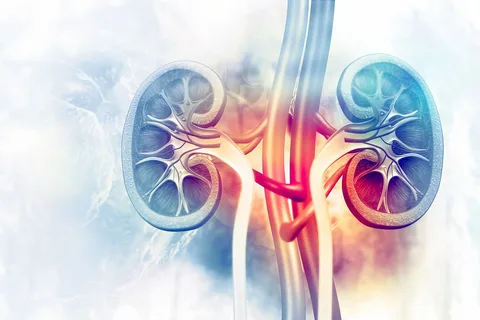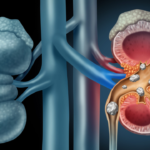
Smoking is a well-known public health hazard, with numerous adverse effects on various organ systems. While its association with lung cancer and respiratory problems is widely recognized, the detrimental impact of smoking on urological health is often underestimated. In this blog, we will delve into the lesser-known consequences of smoking on urological health and discuss the importance of breaking the smoking habit for the sake of your urinary and reproductive systems.
The Bladder: Smoking and Bladder Cancer
One of the most significant concerns related to smoking and urological health is the increased risk of bladder cancer. Smoking is the single largest preventable risk factor for bladder cancer, responsible for approximately 50% of all cases. The harmful chemicals in cigarette smoke, like arsenic and benzene, are absorbed into the bloodstream and eventually find their way to the bladder, where they can damage the bladder lining and increase the likelihood of cancerous growth.
Quitting smoking significantly reduces the risk of developing bladder cancer. Former smokers have a lower risk than current smokers, and the risk continues to decline the longer one stays smoke-free. This underscores the importance of quitting as soon as possible.
Erectile Dysfunction and Smoking
Smoking also affects male sexual health. Studies have shown a clear link between smoking and erectile dysfunction (ED). Nicotine and other toxins in cigarette smoke constrict blood vessels, reducing blood flow to the penis, which is essential for achieving and maintaining an erection. Over time, smoking can damage the blood vessels, making ED more severe and difficult to treat.
Fortunately, the impact of smoking on erectile function is reversible. Quitting smoking can lead to significant improvements in sexual performance, as the blood vessels begin to heal and function returns to normal.
Female Urological Health
While many of the studies on smoking and urological health have focused on men, women are not immune to the harmful effects of smoking on their urinary and reproductive systems. Smoking during pregnancy can lead to low birth weight, premature birth, and other complications, which can affect a child’s long-term health.
Furthermore, women who smoke are more likely to experience urinary incontinence, a condition that can greatly affect their quality of life. The coughing associated with smoking can weaken the pelvic floor muscles, contributing to incontinence issues.
Secondhand Smoke and Urological Health
It’s not just smokers who are at risk. Exposure to secondhand smoke can also harm urological health. Children exposed to secondhand smoke are more likely to experience urinary tract infections, and adults may suffer from worsening preexisting urological conditions. Therefore, both smokers and those around them must be aware of the dangers of secondhand smoke.
Conclusion:
In conclusion, the impact of smoking on urological health cannot be understated. Smoking not only increases the risk of bladder cancer, erectile dysfunction, and urinary incontinence but also poses significant risks to pregnant women and those exposed to secondhand smoke. The evidence is clear: quitting smoking is the key to preserving and improving urological health.
It’s essential to recognize that quitting smoking is a challenging journey, but the benefits are immense. Seeking support from healthcare professionals, smoking cessation programs, and support networks can make a significant difference in successfully breaking the smoking habit. Your urinary and reproductive systems will undoubtedly benefit from this positive change.
Remember, Dr. Dhake and other healthcare professionals are here to guide and support you on your path to better urological health. Take the first step towards a smoke-free life, and you’ll be taking a giant leap towards a healthier future. Your body, and those who care about you, will thank you for it.




